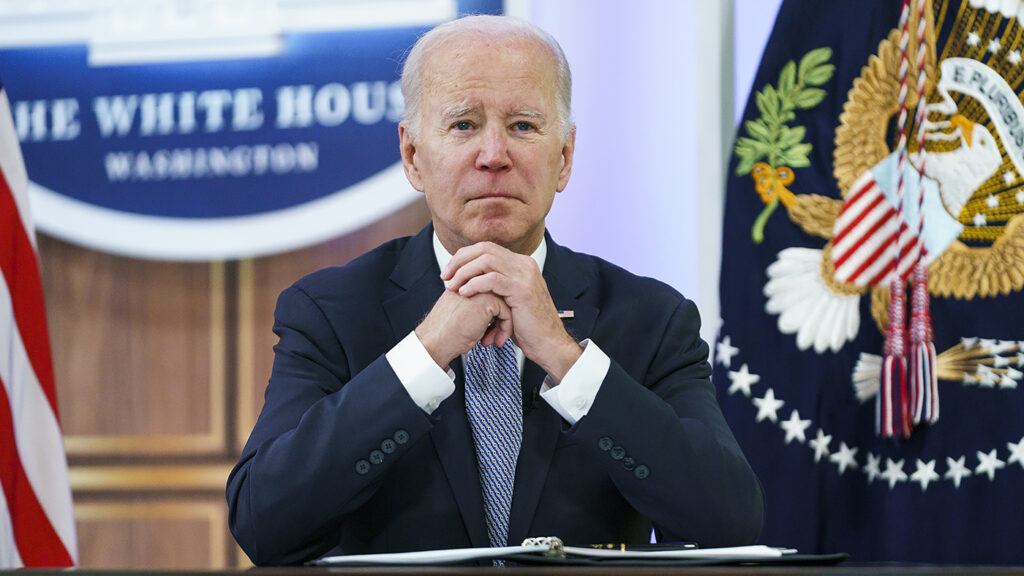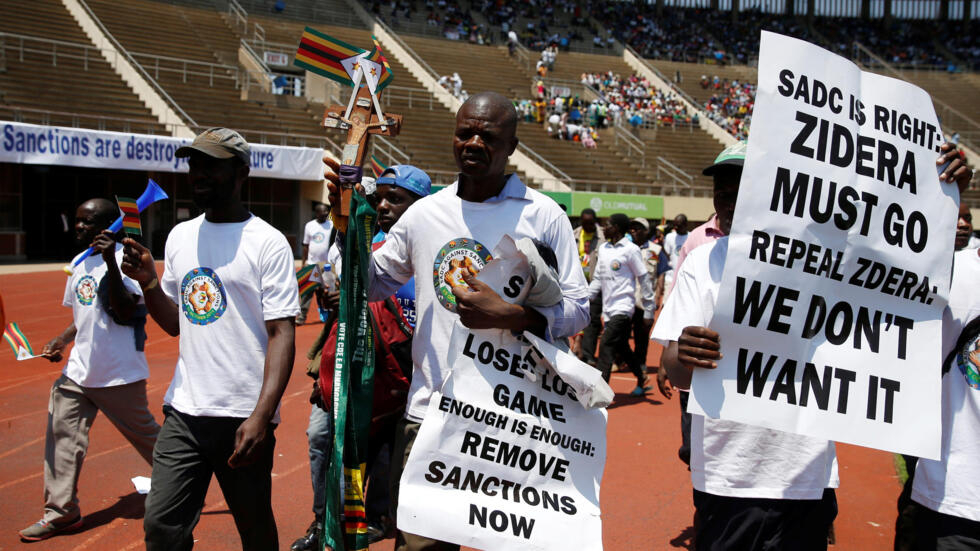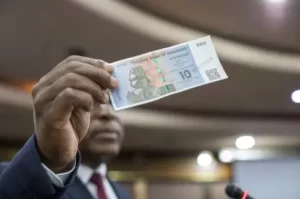CLAIM: The United States has terminated sanctions on Zimbabwe which has (sic) been in place since 2003.
Source: Sophie Mokoena on X (formerly Twitter)
Verdict: Misleading
On the 4th of March 2024, President Joseph R. Biden of the United States of America issued an executive order on Zimbabwe, and really threw the cat among the pigeons, totally muddying the waters with questions of are we or aren’t we still under sanctions; have they or haven’t they removed the sanctions?
SABC political editor Sophie Mokoena posted on her X account that, ‘The United States has terminated sanctions on Zimbabwe which has (sic) been in place since 2003. President Mnangagwa, Vice President Chiwenga, Walter Tapfumaneyi, and businessman Kudakwashe Tagwirei remain on sanctions .#sabcnews’.
Zambian President Hikainde Hichilema posted that, ‘Pleased to see @POTUS President Biden terminate the #Zimbabwe Sanctions Program. This is further evidence that Pres. Biden listens to his African partners. We hope this is an opportunity for a new direction for Zimbabwe and regional engagement.’
The executive order terminates the national emergency status concerning Zimbabwe, which was declared in 2003 and expanded in 2005 and 2008, while also revoking the sanctions imposed on certain members of the Government of Zimbabwe and other persons. The executive order states that the declaration of a national emergency is no longer needed, although the situation in Zimbabwe remains a concern, especially with respect to human rights abuses and public corruption. The executive order also specifies ‘nothing in this order shall be construed to impair or otherwise affect: (i) the authority granted by law to an executive department or agency, or the head thereof’.
But. Does this mean that Zimbabwe is no longer under sanctions?
No. Zimbabwe sanctions were introduced in 2001 by the Zimbabwe Democracy and Economic Recovery Act – ZIDERA – amended in 2018, which still remains in place. It is ZIDERA that stops Zimbabwe from accessing credit lines from multilateral financial institutions. The act states that:
Until the President makes the certification described in subsection (d), and except as may be required to meet basic human needs or for good governance, the Secretary of the Treasury shall instruct the United States executive director to each international financial institution to oppose and vote against—(1) any extension by the respective institution of any loan, credit, or guarantee to the Government of Zimbabwe; or (2) any cancellation or reduction of indebtedness owed by the Government of Zimbabwe to the United States or any international financial institution.
However, in a press conference following President Biden’s announcement, the United States Embassy in Zimbabwe said that ZIDERA is not a sanctions law. Answering a follow up question, the embassy’s Public Affairs Officer, Larry Socha, said, ‘The Zimbabwe Democracy and Recovery Act has not changed. But ZIDERA is not a sanction. We have never invoked ZIDERA to oppose international financial institution laws or debt structuring. ZIDERA outlines a clear roadmap for the government of Zimbabwe to access concessional financing and possible debt restructuring but this can only happen once the government of Zimbabwe has paid its outstanding debt arrears to the international community. Messaging on ZIDERA might be catchy but ZIDERA is not the problem. ZIDERA is not the cause of Zimbabwe’s economic troubles, decades of economic mismanagement and widespread corruption are.’

But, on the other hand, the Office of the United Nations High Commissioner for Human Rights, is on record saying that ZIDERA is a sanctions law, stating, ‘Zimbabwe’s Land Reform Programme has led the United States of America (USA) to impose illegal and unjustified sanctions under the so-called Zimbabwe Democracy and Economic Recovery Act (ZIDERA) of 2001, which was amended with a view to further tightening its provisions in 2018.’
The Office says Zimbabwe has lost billions from bilateral donor support and loans due to sanctions.
U.S. Senator Jim Risch (R-Idaho), ranking member of the Senate Foreign Relations Committee, in a statement following President Biden’s statement, also mentioned that the termination of the Zimbabwe Sanctions Program, ‘has no impact on ZIDERA’.
What has changed?

All Zimbabwean individuals and entities who had been specified under the Executive Orders on the Zimbabwe Sanctions Program have been removed following the termination of the programme by President Biden.
However, the United States government has designated 11 Zimbabwean individuals and 3 entities under the Global Magnitsky Sanctions programme.
A major change from this is that mining entities such as the Minerals Marketing Corporation of Zimbabwe, Zimbabwe Mining Development Corporation and Mbada Diamonds have been removed from the Specially Designated Nationals and Blocked Persons List, which will allow them to access new markets and credit lines.
Conclusion
The claim that The United States has terminated sanctions on Zimbabwe which have been in place since 2003 has been rated as misleading and lacking the full context. While President Biden has terminated the Zimbabwe Sanctions Program under which certain individuals and entities had been sanctioned, ZIDERA which introduced sanctions against Zimbabwe in 2001 remains in place. Under this act, the US still ‘instructs the US Executive Director to each International Financial Institution to oppose and vote against any extension by the respective institution of any loan, credit, or guarantee to the Government of Zimbabwe or any cancellation or reduction of indebtedness owed by the Government of Zimbabwe to the US or any International Financial Institution’. What has changed is the designation of Zimbabwean individuals and entities under the Zimbabwe Sanctions Program which has been terminated and the addition of 11 individuals and 3 entities to a global sanctions programme, the Global Magnitsky Sanctions programme.








